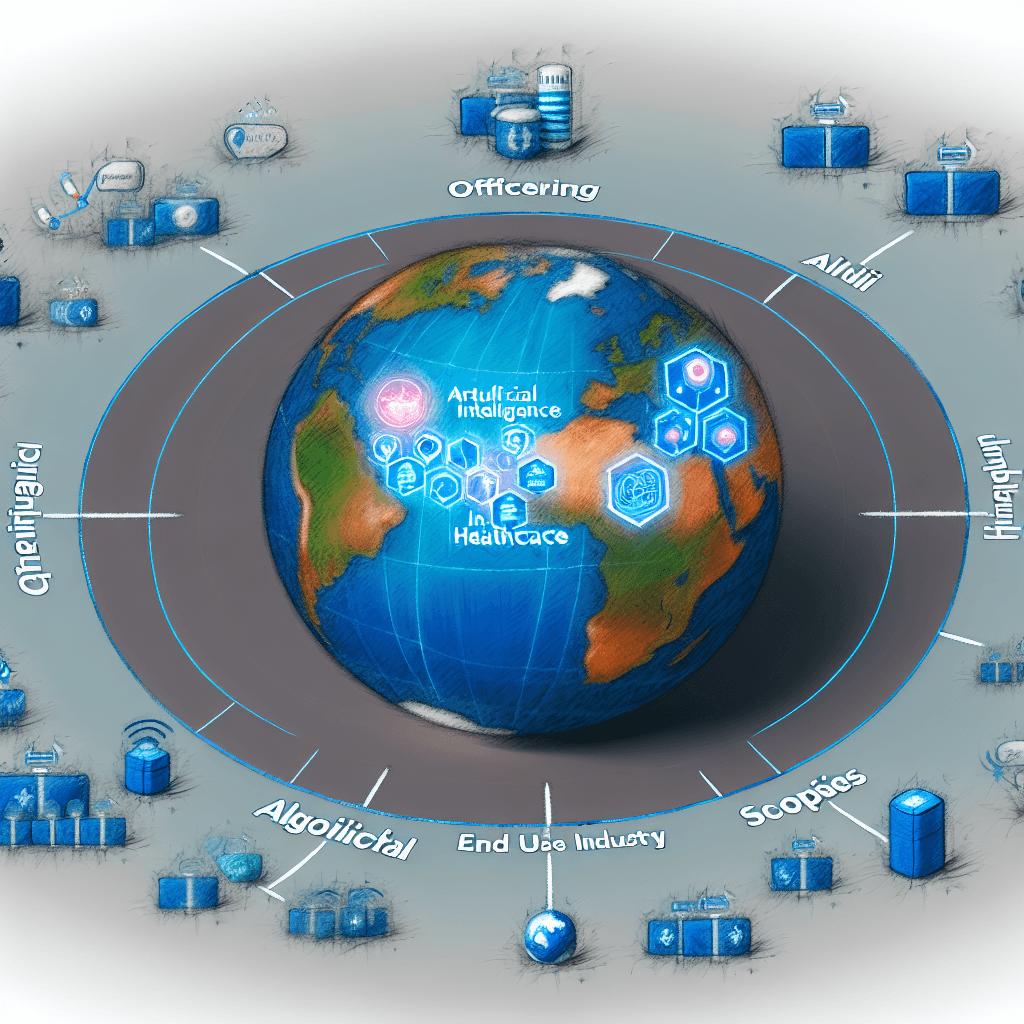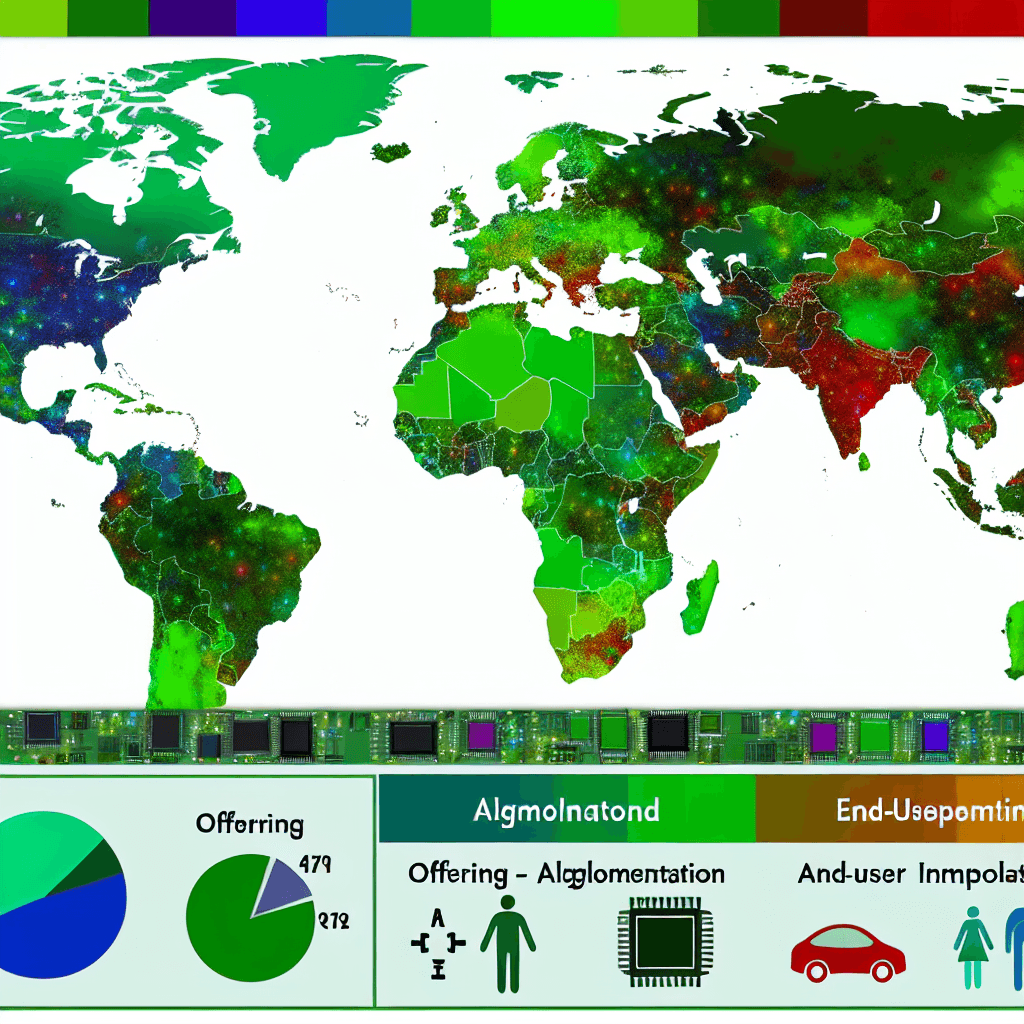Explore the global AI in healthcare market trends by offerings, algorithms, end-use industries, and regions in our comprehensive forecast report.
Global Artificial Intelligence In Healthcare Market By Offering, By Algorithm, By End Use Industry, By Geographic Scope And Forecast

Table of Contents
- Exploring the Global Artificial Intelligence in Healthcare Market: Offerings, Algorithms, and End-Use Industries
- Overview of AI Offerings in Healthcare
- AI Algorithms Transforming Healthcare
- End-Use Industries Benefiting from AI in Healthcare
- Geographic Scope of AI in Healthcare
- Case Studies and Examples
- Conclusion: The Future of AI in Healthcare
Exploring the Global Artificial Intelligence in Healthcare Market: Offerings, Algorithms, and End-Use Industries

The integration of Artificial Intelligence (AI) in healthcare is revolutionizing the medical field, offering unprecedented tools for diagnosis, treatment planning, patient care, and management. This article delves into the global AI in healthcare market, examining its offerings, algorithms, end-use industries, and geographical distribution. By exploring current trends, case studies, and statistical data, we aim to provide a comprehensive overview of this dynamic field.
Overview of AI Offerings in Healthcare
AI in healthcare encompasses a wide range of technologies designed to assist in different aspects of patient care and hospital management. These offerings can be broadly categorized into hardware, software solutions, and services:
- Hardware includes AI-powered medical devices and wearable technology.
- Software Solutions involve advanced algorithms and applications for data management, patient diagnostics, and treatment protocols.
- Services cover the deployment, maintenance, and training necessary to integrate AI technologies into existing healthcare systems.
Each category plays a crucial role in enhancing the efficiency, accuracy, and effectiveness of healthcare services, leading to better patient outcomes and optimized operational costs.
AI Algorithms Transforming Healthcare
The effectiveness of AI in healthcare largely depends on the algorithms it employs. These algorithms can be classified into several types, each serving distinct functions:
- Machine Learning: Used for predicting disease outbreaks, patient diagnosis, and prognosis based on historical data.
- Natural Language Processing (NLP): Helps in processing and understanding human language, enabling AI systems to extract meaningful information from medical records and literature.
- Neural Networks: Particularly useful in image recognition tasks, such as analyzing radiology images to detect abnormalities.
- Deep Learning: A subset of machine learning that is particularly effective in processing large and complex datasets, often used in genomics and drug discovery.
These algorithms are continuously refined and adapted to meet the specific needs of the healthcare sector, driving innovations in disease diagnosis, treatment personalization, and patient management.
End-Use Industries Benefiting from AI in Healthcare
AI technologies find applications across various segments of the healthcare industry:
- Hospitals and Clinics: Utilize AI for operational management, patient data processing, and clinical decision support.
- Pharmaceuticals: Employ AI in drug discovery, clinical trials, and personalized medicine.
- Biotechnology: Use AI to analyze biological data and support new biotech innovations.
- Insurance: Apply AI to streamline claims processing and fraud detection.
- Research Institutions: Leverage AI for conducting advanced medical research and studies.
Each of these industries has witnessed significant improvements in efficiency and effectiveness through the adoption of AI technologies.
Geographic Scope of AI in Healthcare
The global market for AI in healthcare exhibits significant variations across different regions:
- North America: Leads in the adoption of AI in healthcare, driven by advanced healthcare infrastructure, strong governmental support, and the presence of major AI and healthcare companies.
- Europe: Shows robust growth in AI healthcare applications, supported by favorable regulations and numerous AI startups.
- Asia-Pacific: Rapidly growing due to increasing healthcare demands, technological advancements, and government initiatives in countries like China and India.
- Rest of the World: Although slower in adoption, regions like the Middle East and Africa are beginning to recognize the potential benefits of AI in healthcare.
This geographical distribution is influenced by factors such as technological readiness, healthcare spending, regulatory frameworks, and local economic conditions.
Case Studies and Examples
Several successful implementations of AI in healthcare provide insights into its potential benefits:
- IBM Watson Health: Known for its ability to process and analyze vast amounts of data, Watson Health has been instrumental in providing cognitive insights that support clinical decision-making.
- Google DeepMind Health: Works on AI research projects aimed at improving the accuracy of medical diagnoses and reducing time for medical data analysis.
- PathAI: A startup that uses AI-powered pathology to improve the accuracy of cancer diagnosis.
These examples highlight the diverse applications of AI in improving healthcare outcomes and operational efficiencies.
Conclusion: The Future of AI in Healthcare
The integration of AI into the healthcare sector holds promising potential for transforming various aspects of patient care and administrative processes. As technology advances and becomes more integrated into everyday healthcare practices, we can expect to see further improvements in patient outcomes, cost-efficiency, and service delivery. The global AI in healthcare market continues to grow, driven by technological advancements, increasing healthcare demands, and the continuous evolution of AI algorithms. With ongoing research and development, the future of AI in healthcare looks bright, promising a new era of medical innovation and improved health services worldwide.
In conclusion, the global AI in healthcare market is a dynamic and rapidly evolving field with significant potential to enhance the efficiency and effectiveness of healthcare delivery. As this technology continues to develop, it will undoubtedly unlock new possibilities for patient care and medical research.








